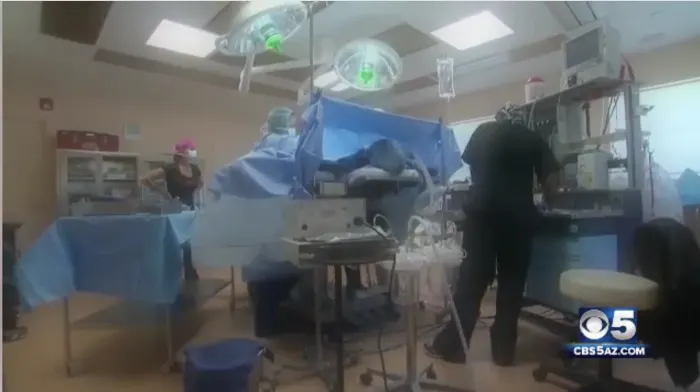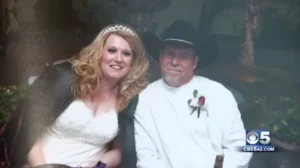
A Husband’s Final Words To His Wife In A Coma: She Listens As They Make The Tough Decision
Note: This story is being republished from its original coverage in September 2017.
After 12 days in a coma, doctors expressed concern that 47-year-old Lyndee Brown Pellettiere-Swapp might not awaken and decided to turn off her life support. However, the Arizona resident surprised everyone. Once the machines were off, she told her husband, “I’m a fighter.”
Pellettiere-Swapp had been discovered unconscious by her husband about two weeks prior and was rushed to the hospital. While there, she experienced seizures and remained mostly unresponsive. Medical professionals concluded that she would not regain consciousness and felt there were no further options.

Despite her inability to move or speak, Pellettiere-Swapp was not brain-dead.
In an interview with CBS5, she recounted, “I remember people talking to me. I remember visits, like my niece reading to me.”
Unbeknownst to the doctors, she was aware of her surroundings.
“I recall a doctor shining a light in my eyes and telling my family there was no response. I also heard the doctor explain what would happen when they turned off life support,” she shared with Mirror Online.

Her organs were failing, and since she was an organ donor, her family decided to facilitate the donation process.
“They allowed one more day for loved ones to say their goodbyes. On October 29, they turned off my life support. Throughout it all, my husband kept whispering in my ear, ‘I need you to fight,’” she remembered.
As the organ team prepared to proceed, Pellettiere-Swapp began to make a desperate effort to signal them.

She explained to CBS5, “In my mind, I was clearly expressing myself, even if they couldn’t hear me. I finally managed to say, ‘I’m a fighter,’ which echoed what my husband had been saying.”
After her awakening, Pellettiere-Swapp had to relearn how to walk and eat. Since her discharge from the hospital in November 2015, she has faced seven additional hospitalizations and undergone four surgeries due to complications.

She now lives with anxiety, panic attacks, and PTSD, but her family is overjoyed that she regained consciousness.
Reflecting on her experience, she advises, “Just because someone isn’t conscious doesn’t mean they can’t hear you. Speak to your loved ones in those moments—they are listening.”